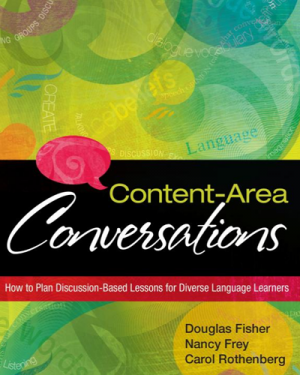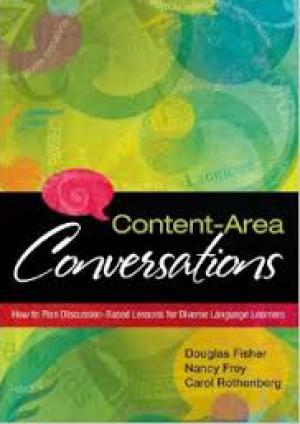Oral Language Development & ELLs

How can educators support ELLs' oral language development in the classroom for students who are at different proficiency levels? These books provide some answers and ideas, as well as recommended resources.
Jump to navigation Jump to Content

How can educators support ELLs' oral language development in the classroom for students who are at different proficiency levels? These books provide some answers and ideas, as well as recommended resources.
Product Description: Authors Jeff Zwiers and Marie Crawford have identified five core communication skills to help students hold productive academic conversations across content areas. These skills include: elaborating and clarifying, supporting ideas with evidence, building on and/or challenging ideas, paraphrasing, and synthesizing.
Michael Optiz and Lindsey Guccione present 25 strategies for oral reading that are designed to help engage ELLs and bolster reading comprehension skills. The activities span five proficiency levels and each activity includes a classroom scenario, recommended children's books, online resources, and special tips. In addition, the authors set the stage with an introduction to the challenges that ELLs and their teachers commonly face during oral reading activities, the ways in which ELLs can benefit from oral reading activities, and some tips for oral language assessment.
Product Description: This practical, hands-on guide outlines strategies for creating and managing environments that spur sophisticated levels of student communication, both oral and written. Paying special attention to the needs of ELLs and using numerous classroom scenarios, the authors detail steps for designing lessons that spark student talk; describe easy-to-use assessments for all grade levels; provide rubrics, worksheets, sentence frames, and other imaginative tools that encourage academic communication; and offer guiding questions to help teachers plan instruction.
Product Description: This book educates professionals about the features of narrative discourse from a multicultural perspective. The authors seek to prevent misdiagnoses of cultural differences as deficits. The importance of narratives for children and adults is presented with respect to literacy, education, law and medicine. Narratives from children with typical and impaired discourse development are described regarding the following cultures: European North American, African American, Spanish-speaking communities, and Asian Americans.
See more great related resources and videos in our Multicultural Literature section!




